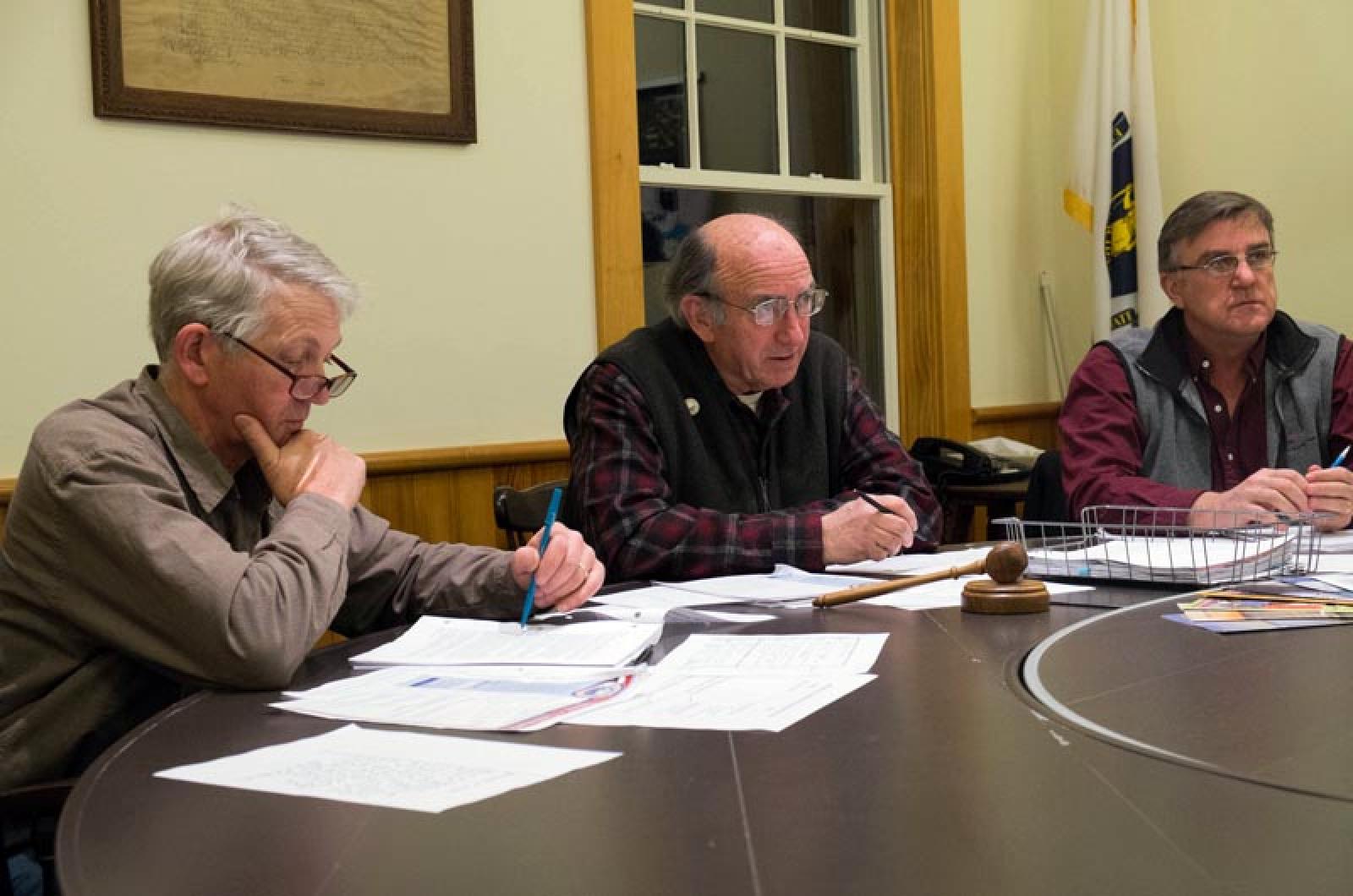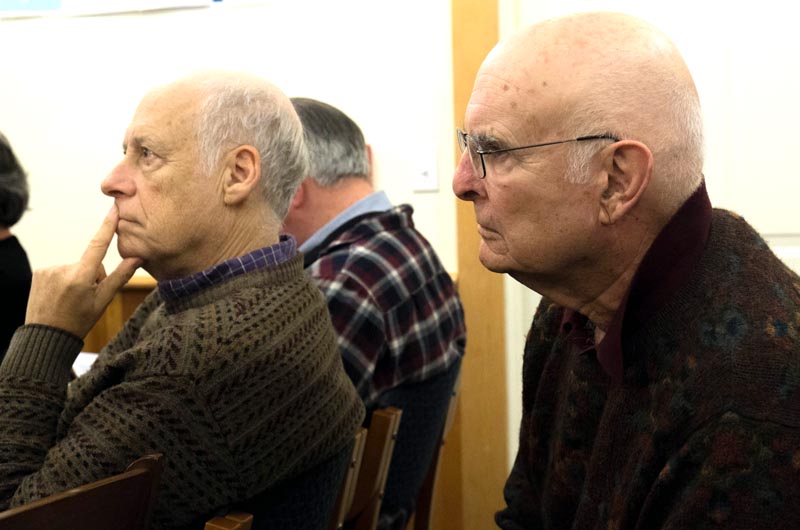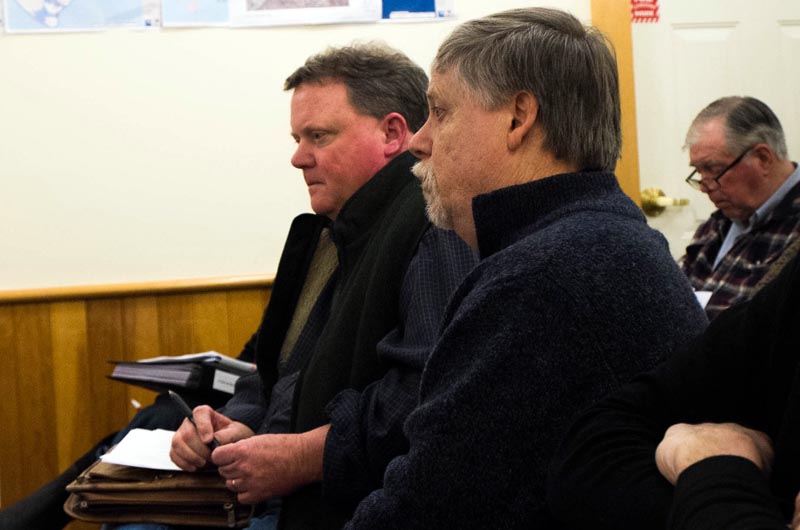The Martha’s Vineyard Commission continued to be in the spotlight this week, with Island towns questioning the commission’s budget and their role on the Island as part of their budget reviews.
Two weeks ago, members of the Chilmark finance advisory committee voted not to recommend the commission budget for fiscal year 2015. “It is the feeling of the finance advisory committee that the budget and its presentation reflect a lack of clear management, focus and prioritization,” the committee said in a letter to commission members and staff.
Finance committee members and selectmen in Oak Bluffs, Edgartown and Tisbury have also weighed in with concerns about the regional organization. The Aquinnah selectmen joined in this week when they reviewed their town assessments.
“I’d like to see more from the commission than what I’m seeing,” selectman Jim Newman said, noting he found the commission’s assessment bothersome.
The commission’s fiscal year 2015 budget, approved in January, is $1.45 million. This is up about 10 per cent from the fiscal year 2014 budget. The commission said the bulk of the increase is from $75,000 needed this year for a one-time replenishment of the general reserve fund, which had been depleted by high legal fees.
A small part of the budget is funded through grants, contracts and gifts, but the majority of commission funding comes from the six Vineyard towns and Gosnold, with each town’s payment based on property valuation. This year assessments increased for each town by just over 14 per cent.
Commission members and staff came before the Chilmark selectmen at their meeting Tuesday. Members of the finance committee said their concerns went beyond budget specifics. Finance committee member Jim Malkin said the committee spent three and a half weeks looking at the town budget. “An increase of 14.2 per cent for Chilmark is pretty hefty,” he said, referring to the town assessment.
“When things have been tough, you refocus on what you’re doing,” Mr. Malkin said. “Some good things don’t get done, some good people may get laid off, the increases in salaries may not be merit plus cost of living.” He said the committee felt the 14.2 per cent assessment increase was “ indicative of an open funding rather than a disciplined focus and prioritization of tasks at hand.”
Finance committee member J.B. Riggs Parker was even more pointed in his remarks. “I think the commission has lost its way,” Mr. Parker said, recalling the early days of the commission, when he said the focus was on “how the Island could be saved, what regulations were needed in order to keep this Island the way it had been.” He recalled what he called “constructive planning” like roadside, harbor and shore districts.
“I believe now the Martha’s Vineyard Commission is a permit processor and permit processors’ budgets always expand because there’s always more permits,” Mr. Parker said.
“I think you need to have them take a real look at who they are and why they’re there and perhaps revise their thinking,” he continued. “I would just say to you that processors find problems, planners find solutions. We need solutions. Focus.”
Commission chairman Fred Hancock said that from 2009 to 2011 towns were struggling with tight budgets, so the commission worked at keeping level funding even though they know the legal amount was inadequate. “But we kept that at level funding to try and not raise our assessments to the towns,” he said. “We were successful in doing that for three years and then it finally caught up with us.”
In response to Mr. Parker’s concerns, Mr. Hancock said that though the commission has changed by necessity over the years, it has not kept its role clearly in the forefront for Island towns. “One of our shortcomings is that we have perhaps not been as good as we should be at really explaining to people what the commission does and just as important what it doesn’t do,” Mr. Hancock said. He said some think the commission cures every ill while others think it does way too much now and feel there isn’t any place for the commission. He said about two-thirds of the commission budget goes for planning, including working on water quality, transportation, helping towns apply for grants, and mapping, while the remaining one-third goes toward regulation.
Commission executive director Mark London reiterated the point.
“As much as nobody likes regulations, it has been a very powerful tool in helping preserve the character of the Island,” he said, noting that some question why the commission would review projects like a proposed bowling alley in Oak Bluffs. He said this type of project is considered regional in nature because it has an impact on water quality, transportation, affordable housing and other factors.
“The commission is the only thing on the Island for many of those aspects that has the ability to review these things,” Mr. London said. If the bowling alley is approved, he said: “It will be a significantly better project in terms of its impact on many regional issues than it would have been otherwise.”
Mr. London also said the commission has an impact not only on projects it reviews but those it does not. He said some people opt out of pursuing what he called bad projects “because they know that the town could potentially send it to the Martha’s Vineyard Commission and the commission will make sure certain things will be dealt with that the towns don’t necessarily have the ability to deal with.”
Chilmark police chief Brian Cioffi took issue with the idea that some don’t pursue projects because of the commission. “We have rules and we have laws and where I come from you follow the rules and laws, you don’t use them to be a bully,” he said.
Commissioner Joan Malkin from Chilmark attended the meeting.
“What has been raised is something which goes beyond tonight’s budget,” Mrs. Malkin said, suggesting further discussion about the role of the commission.
Selectman Jonathan Mayhew said: “$75,000 is a lot of money for the town of Chilmark.” Last year, Chilmark’s approved budget was about $8.1 million.
The commission budget is capped at .36 per cent of the total property assessments on the Island — about seven times more than what the budget is now. Chilmark has the second highest value of assessed land on the Island.
Towns are legally obligated to pay the assessment and are subject to an eight per cent fine if they do not.
Selectman Bill Rossi said the town needs to be more involved in the commission’s budgeting process, and perhaps have a representative in attendance.
Mr. Mayhew returned to Mr. Parker’s remarks about the broader role of the MVC. “Riggs brings up a very good point as far as what’s going on in the commission as a whole,” he said.
The selectmen took no action, as members of the finance committee said they wanted to discuss further the budget among themselves. Chairman Warren Doty said a further meeting would be scheduled.









Comments
Comment policy »